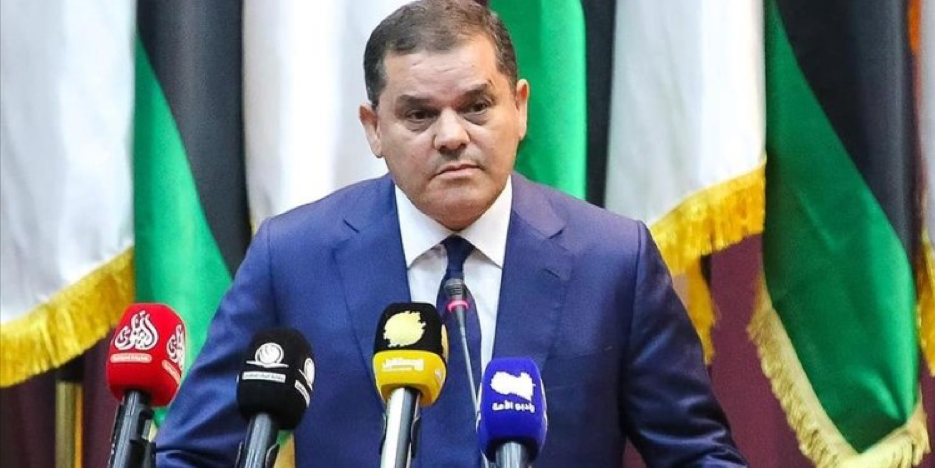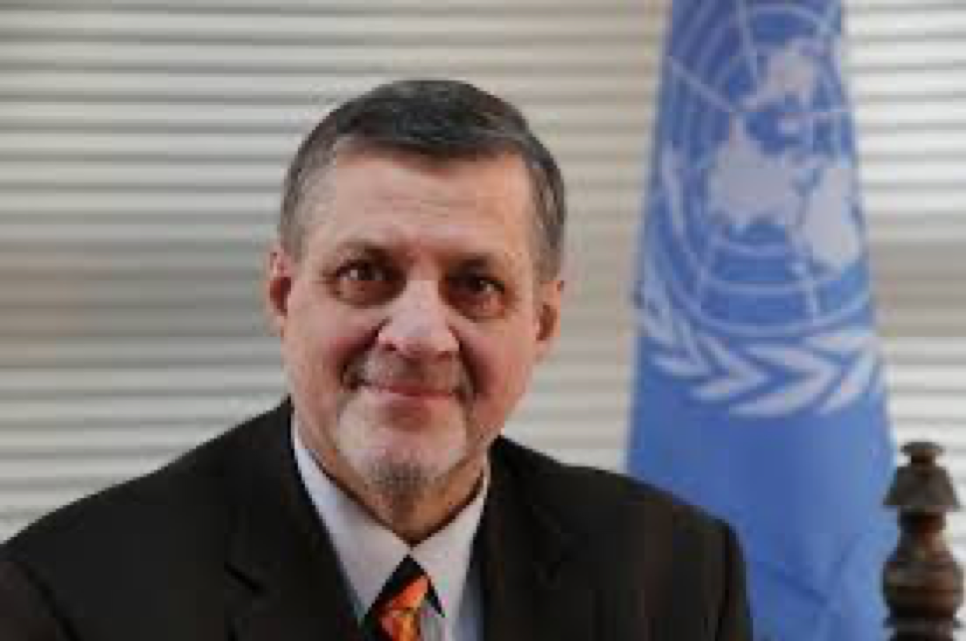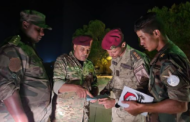Mar. 10, Libyan Parliament grants confidence to Dbaiba cabinet.
Mar. 11, the Syrian Observatory for Human Rights (SOHR) reports 6,750 Syrian fighters still in Libya, jeopardizing stability.
Mar. 13, Libyan National Army targets Islamic State (IS) hideouts in Ubari, kills terrorists, arrests local IS leader.
TRIPOLI
- Mar. 11, the Ministry of the Interior of Libya’s Government of National Accord (GNA) announced the arrest of the prime suspects in the March 7 killing of lawyer Hanadi Khalifa Al-Qadiri in the Al-Tughar Mosque area, southern Tripoli, reportedly at the hands of an armed group formed by Chadian fighters;
- Mar. 8, the National Commission for Human Rights in Libya (NCHRL) voiced its deep concern over reports that the Deputy Head of its media office, journalist Mohamed Ali Al-Rajhi has been kidnapped in Tajoura. He was reportedly arrested by gunmen affiliated with the so-called Anti-Witchcraft and Sorcery Unit of the General Authority for Endowments and Islamic Affairs in Tajoura.
SEBHA
- Mar. 9, Spokesman for the ‘Coronavirus Control Committee in Sebha’, Salah Ibrahim confirmed that the epidemiological situation in the city is worsening. In press statements, Ibrahim indicated that the city is experiencing the height of the second wave of the virus, and that the death rate ranges between four to six deaths per day.
UBARI
- Mar. 13, the Libyan National Army’s (LNA) Air Force targeted Islamic State (IS) hideouts in the city of Ubari, killing a number of IS members and detonating an ammunition storage site. Airstrikes targeted the organization’s headquarters, then an LNA force stormed the hideouts and arrested two men and a woman, seizing a quantity of weapons. The operations were carried out by elements of the Al-Asifa and 116th battalions of the Sabha military zone;

COVID-19
- Mar. 13, Libya’s new Prime Minister, Abdulhamid Dbaiba pledged to provide vaccines against the COVID-19 pandemic at the earliest possible time. “Wearing masks will be mandatory. This is the least thing we can do in our effort to curb the virus,” Dbaiba added in a statement issued by his office.
NATIONAL POLITICS AND SECURITY
- Mar. 14, Fathi Al-Marimi, the Media Advisor to the Parliament Speaker, announced that Libyan militia elements will have the opportunity to be integrated in the Libyan army and the police. Al-Marimi added that there are arrangements being put in place by the 5+5 Joint Military Commission (JMC) to evacuate mercenaries and terrorist militias from the Libyan territories;
- Mar. 13, Libya’s new Prime Minister Abdulhamid Dbaiba received the Cabinet Office in Tripoli. He held a meeting with directors of departments and offices in the Bureau. During the meeting, Dbaiba discussed the work plan and coordination mechanism with ministries and government institutions affiliated with the Government of National Unity (GNU);
- Mar. 12, the Head of Libya’s Presidential Council, Menfi, pledged to pave the way for the 5+5 Joint Military Commission (JMC), in order to unify the Libyan Army. In a televised speech, he said the effort will be focused on establishing the national reconciliation process by creating its structures and providing its requirements and conditions;
- Major General Khaled Al-Mahjoub, Director of the Moral Guidance Department at the Libyan National Army (LNA), said that the advance team of the UN observer mission had arrived in Benghazi Mar. 8. It held meetings with LNA members of the 5+5 Joint Military Committee (JMC). Al-Mahjoub added that upon its arrival, the team held an expanded meeting with LNA officers to discuss arrangements for starting the work of international observers. This is in preparation for the final meetings in Sirte

- Mar. 11, the Syrian Observatory for Human Rights (SOHR) reported that Syrian mercenaries in Libya are hindering national stability. The SOHR noted that 6,750 Syrian fighters remain in Libya. Since November, the fighters that have been returned to Syria, have only been replaced with new batches of soldiers;
- Mar. 11, Chairman of Libya’s National Oil Corporation (NOC) Mustafa Sanalla said the oil production in Libya will increase to 1.45 million barrels per day, by the end of 2021. During a televised interview with Bloomberg, Sanalla noted that the NOC is planning to produce 2.1 million bpd, two years from now;
- Mar. 10, the Libyan Parliament granted confidence to Prime Minister Abdel-Hamid Dbaiba’s cabinet. He is now to lead the North African nation to December elections, a key step towards resolving a decade of chaos and violence;

- Mar. 8, Deputy Prime Minister of the Tripoli-based Government of National Accord (GNA), Ahmed Maiteeq officially announced the end of the financial split between the two finance ministries in western and eastern Libya. He added that this is a step towards unifying all state institutions.
INTERNATIONAL RELATIONS
- Mar. 14, the United States (US) National Security Advisor, Jake Sullivan congratulated the Libyan people on establishing a Government of National Unity (GNU). He said it will guide Libya to national elections on December 24;
- Mar. 13, Egypt’s President Abdel Fattah Al-Sisi stressed Egypt’s full support for the Libyan Government of National Unity (GNU) headed by Abdulhamid Dbaiba. He expressed a willingness to provide expertise in areas that would achieve political stability, as well as participating in the implementation of development projects in Libya;
- Mar. 13, the United Nations Security Council (UNSC) called for the withdrawal of all foreign forces and mercenaries from Libya without any further delay;
- Mar. 13, the United Nations (UN) Secretary-General’s Special Envoy for Libya, Ján Kubiš, was in Paris and held a series of meetings with high-level French officials. This was a part of his effort to rally the international community’s support for Libyans in their pursuit of peace, stability, unity and prosperity;

- Mar. 13, the Arab Organization for Human Rights (AOHR) expressed its grave concern about the heightened tensions in the vicinity of Tajoura. The area witnessed the closure of the main road, and the massive mobilization of various militias and armed groups. AOHR stressed the need to refrain from any violence that would undermine the work of the new Government of National Unity (GNU);
- Mar. 12, Italian Interior Minister, Luciana Lamorgese received her Maltese counterpart, Byron Camilleri at the headquarters of the Italian Interior Ministry. During the meeting, the two discussed bilateral issues related to managing migration flows, with particular attention to recent political developments regarding the formation of the new Government of National Unity (GNU) in Libya;
- Mar. 11, Egyptian Foreign Minister Sameh Shoukry and his German counterpart, Heiko Maas discussed the latest regional developments especially with regard to the situation in Libya, during a meeting in Paris, which tackled the Quartet committee to discuss the Mideast peace process;
- Mar. 11, Italian radar site, ItaMilRadar, recorded two military cargo aircraft belonging to the Turkish Air Force, landing in Libya: an A400M flight and another unidentified plane departed from Ankara and Kayseri then landed in western Libya;
- Mar. 10, Italy declared it is ready to cooperate with Libya’s new Presidential Council to support it during the next phases of the transition process. The statement noted that Rome welcomed “with great satisfaction” the outcome of the Libyan Parliament’s plenary session that granted confidence to the Government of National Unity (GNU) led by Prime Minister Abdel-Hamid Dbaiba;
- Mar. 10, the Russian Foreign Ministry issued a statement welcoming the Libyan Parliament’s approval of the new Government of National Unity (GNU) led by Prime Minister Abdel-Hamid Dbaiba;
- UN Secretary-General, António Guterres welcomed the endorsement of the Government of National Unity (GNU) by the Libyan Parliament as an important step towards “restoring unity, stability, security and prosperity in Libya,” the UN said in a statement Mar. 11;
- Mar. 8, Secretary-General of the Arab League, Ahmed Aboul Gheit met with the UN Special Envoy to Libya, Jan Kubis and discussed the latest developments in Libya. The two sides discussed ways to push for a settlement to reach an integrated political solution to the situation in Libya.
- Mar. 8, German Ambassador to Libya, Oliver Owcza stated that today was a unique opportunity for the Libyan Parliament to grant confidence to the newly-elected National Unity Government (NUG). He stressed that it is an important step to reunify the country.


























